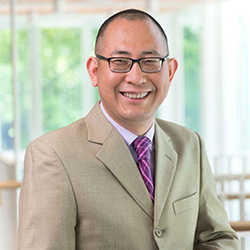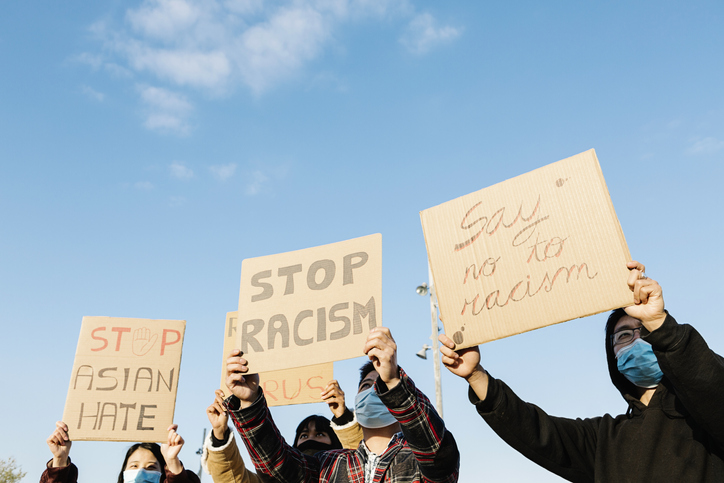A new survey has found that people of East and South East Asian heritage in the UK have been traumatised and outraged by the surge in racist attacks on them since the start of the Covid-19 pandemic and are calling for urgent action.
The pilot study was carried out by Dr Hongwei Bao from the University of Nottingham's School of Cultures, Languages and Area Studies. It reveals the experiences of the ESEA community and their needs and demands in the context of the ongoing global crisis.

Racial abuse of people of ESEA heritage has dramatically increased in the UK and western world during the pandemic, with the widespread apportioning of blame for the disease on China. A recent Ipsos Mori poll found that 1 in 7 people in the UK intentionally avoid people of Chinese origin or appearance. Numerous incidents were reported of ESEAs being assaulted, having their jaw broken, clothes torn off, being spat on, and having their restaurants vandalised. In some parts of the UK there has been a 75% increase in reported incidents on pre-pandemic years.

The results of Dr Bao's new study show that people of East and South East Asian heritage feel the significant increase in racist attacks on them in their everyday lives has gone largely unreported and unchallenged by government and the authorities. Through this research, ESEA community groups all over the UK have suggested a Top 10 list of actions which they say are urgently needed to combat racist abuse against them. These include:
- A zero-tolerance policy for racism in police, government and the public sector.
- More ESEA representation in the mainstream media and target quota set for public-funded media.
- Active anti-racism education in schools and the workplace.
- The police to respond more efficiently and effectively to hate crimes.
- More funding for ESEA community groups and collaboration with police.
- The teaching of ESEA history and white colonialism in the school curriculum.
- Removal of 'Oriental' as a term on police, government and public forms.
Leading the project, Dr Hongwei Bao said: "Racism against East and East Asian people has been a problem for decades and until now the victims have largely suffered in silence. This is why the time has been right to carry out a survey to ask people what should be done to stop this trend. The COVID-19 pandemic has sparked a huge increase in these incidents that are ruining the lives of people just trying to go about their daily lives, at work, school or leisure, in public spaces and on public transport. There have even been heart-breaking examples of British-born young children being targeted by their peers at primary schools. Most of the racist abuse has been verbal but there has been an increasing number of violent physical assaults on people of all ages just because of their ethnicity and people's ignorant perceptions of the global pandemic."
The results of the survey show huge discrepancies between government policy and the real-life experience of ESEA people in Britain. Few respondents were aware of some policies such as Zero Tolerance for Racism or felt that the implementation is inadequate. Three quarters of those surveyed feel strongly about the lack of people from ESEA backgrounds working in mainstream media.

One respondent said: "I want to stress that more ESEA representation in mainstream media is one of the most important in my opinion as it is preventative and aims to include ESEA as a part of the wider society in the minds of the UK public. Unfortunately, the most media coverage we have had has been the coronavirus headlines."
The study found that terminology is a crucial issue in combatting racism against ESEA people. It shows there is a clear demand for the government to remove the term 'Oriental' from public forms. The younger generation of ESEA people are more likely to reject the term 'Oriental' for self-identification, seeing it as a racist term, than the older generation. While some participants identify as Chinese or British Born Chinese (BBC), and a few respondents request adding 'Chinese' to ESEA and making it CESEA, most participants think there is no need to emphasis 'Chinese' in this survey because the term is already subsumed under the term ESEA. ESEA has proven to be the least controversial term for most participants of this survey. However, in the recent census and current public forms, ESEA has yet to be recognised as a valid ethnic identity category.
Although the sample size is small – the 303 participants are mostly young, English-speaking, tech savvy ESEA people, the results correspond with findings from previous studies. Dr Bao is planning further studies which will focus on the needs and demands of older generations and rural communities to give a better understanding of the diversity of the ESEA community in the UK.






